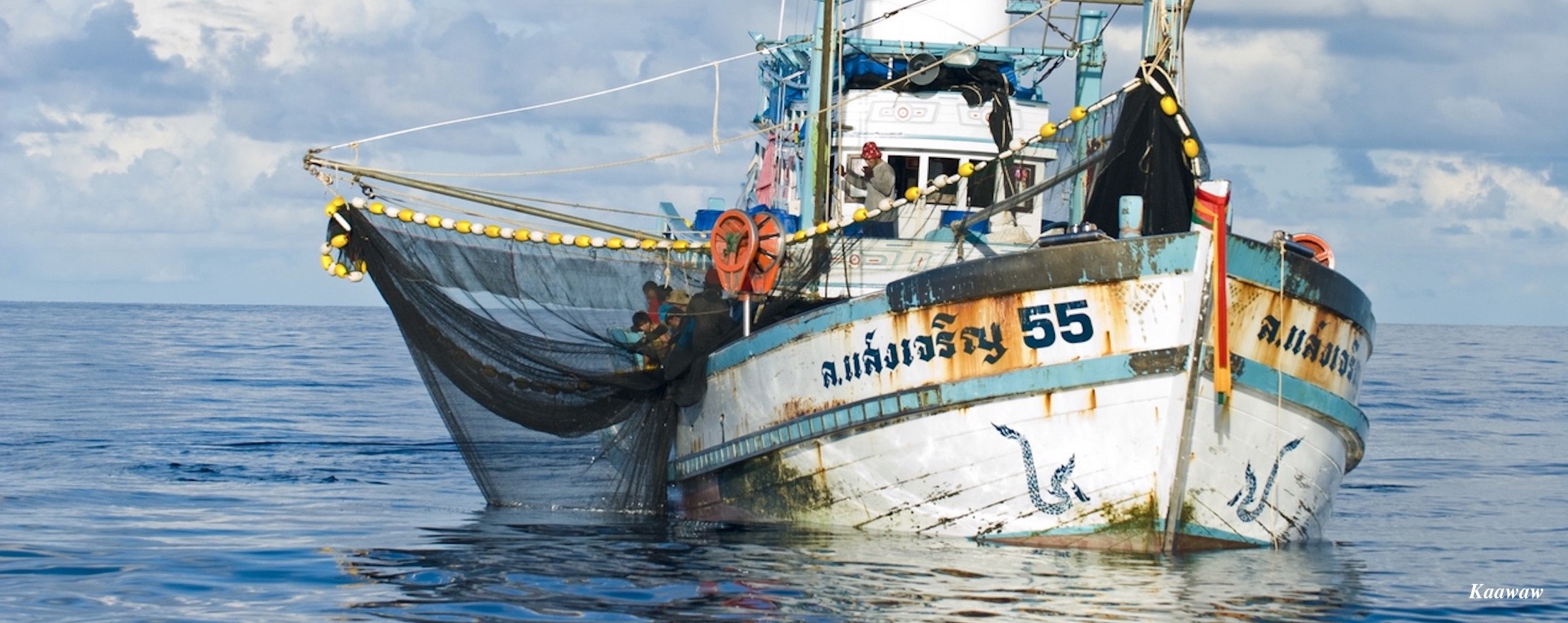
Harvest control rules (HCRs) are the operational component of a harvest strategy, essentially pre-agreed guidelines that determine how much fishing can take place, based on indicators of the targeted stock’s status. HCRs range from basic, constant catch strategies—under which catch levels do not change—to complicated, multistep rules that set allowable catch based on triggers.
Empirical HCRs: Indicators on which fishing opportunities are set come from one or more direct measures of stock status, such as:
Model-based HCRs: Indicators are based on models, such as:
Stock status can be represented graphically by what is known as a Kobe plot. The example below shows a basic HCR. The fishery’s ideal state is green, its cautionary state is yellow, and the state to avoid is red. The HCR has the following specifications:
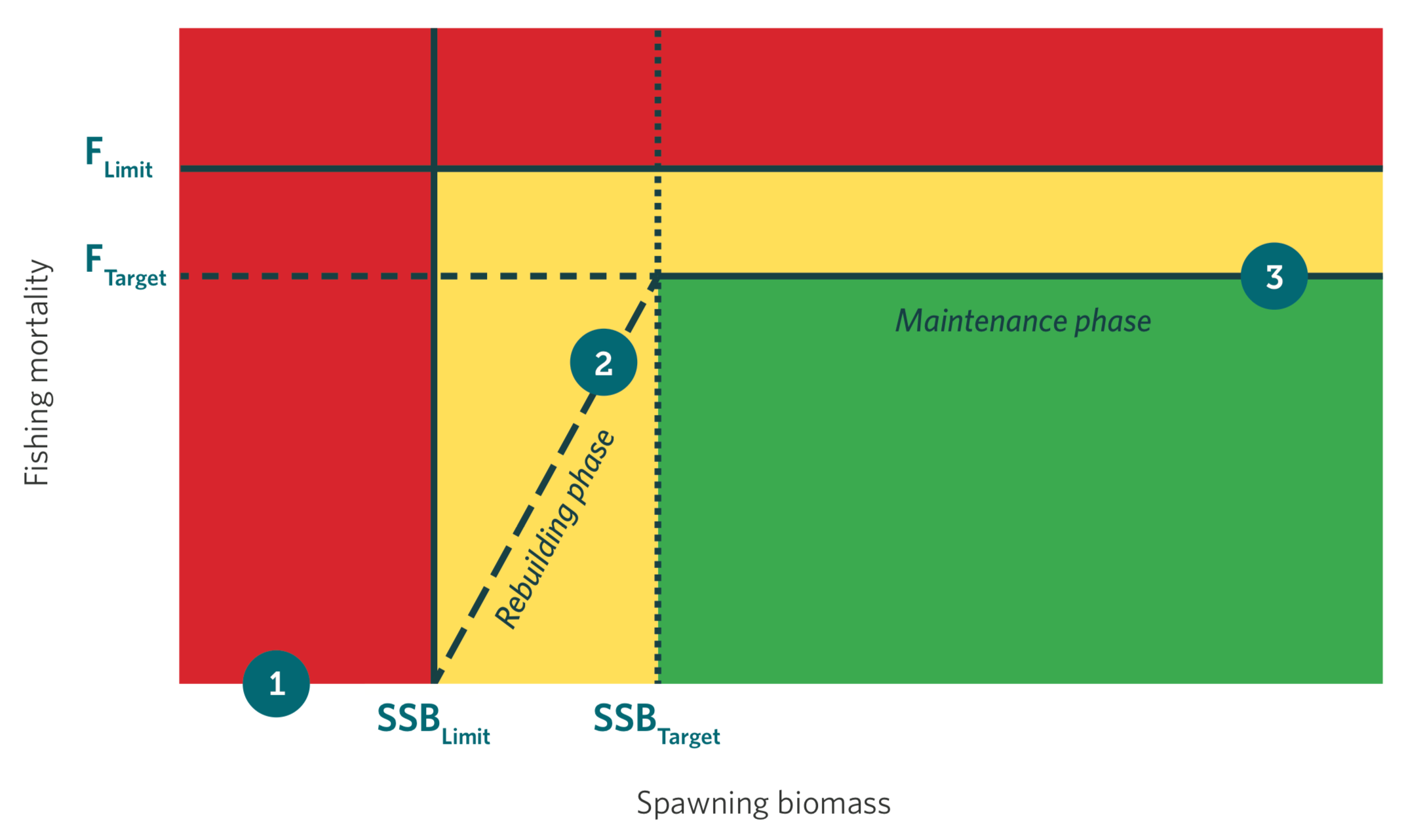
Ⓒ 2016 The Pew Charitable Trusts
FACTSHEET: Harvest Control Rules; Language Options: Español 🇪🇸 • Français 🇫🇷 • 日本 🇯🇵 • ไทย 🇹🇭
We're co-hosting a regional fisheries workshop in Egypt this week, bringing together GFCM & ICCAT managers and scientists. The focus: harvest strategies and management strategy evaluation.
More on the workshop: https://tinyurl.com/3bu6ftx4
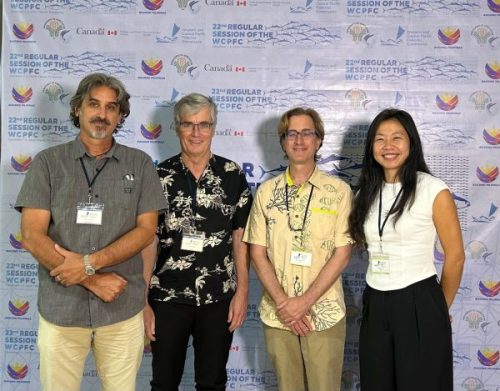
February 19, 2026
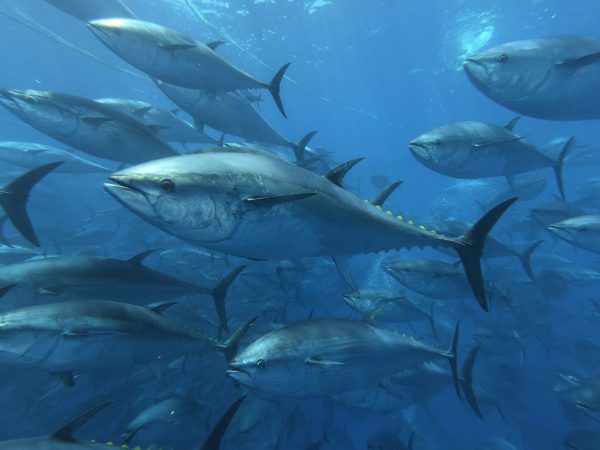
February 17, 2026
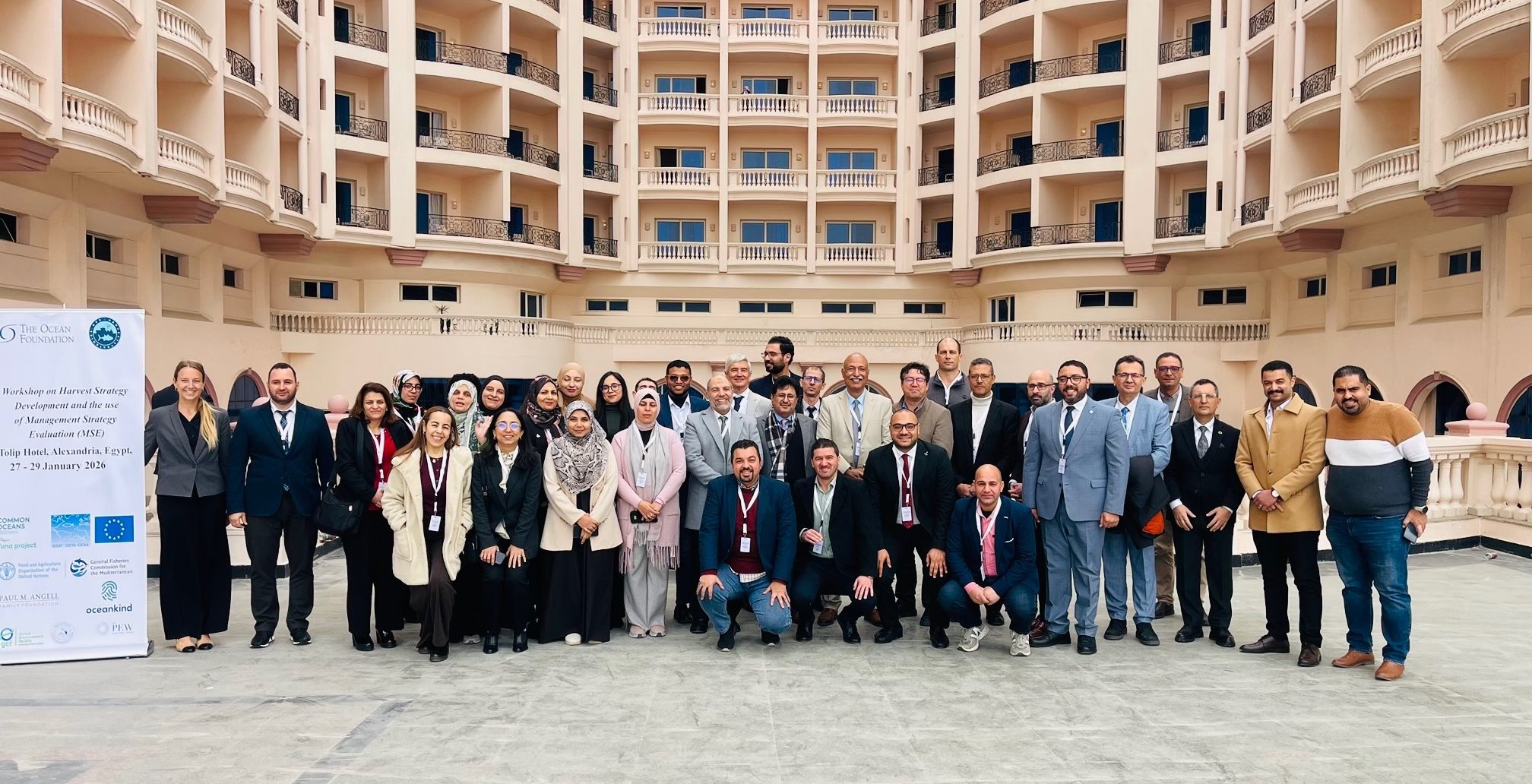
February 11, 2026
HarvestStrategies.org serves as a resource for fisheries scientists, managers, and other stakeholders, compiling information about how harvest strategies work and how implementing this pioneering management approach can lead to sustainable, profitable fisheries and successful recovery programs for many species around the world. The site is managed by The Ocean Foundation’s International Fisheries Conservation Project with support from The Pew Charitable Trusts and the Common Oceans Tuna Fisheries Project, which is funded by GEF and implemented by FAO.
| Status | Description |
|---|---|
| This item has been adopted | |
| This item is in development | |
| This item is behind / stalled | |
| This item has not been started yet |